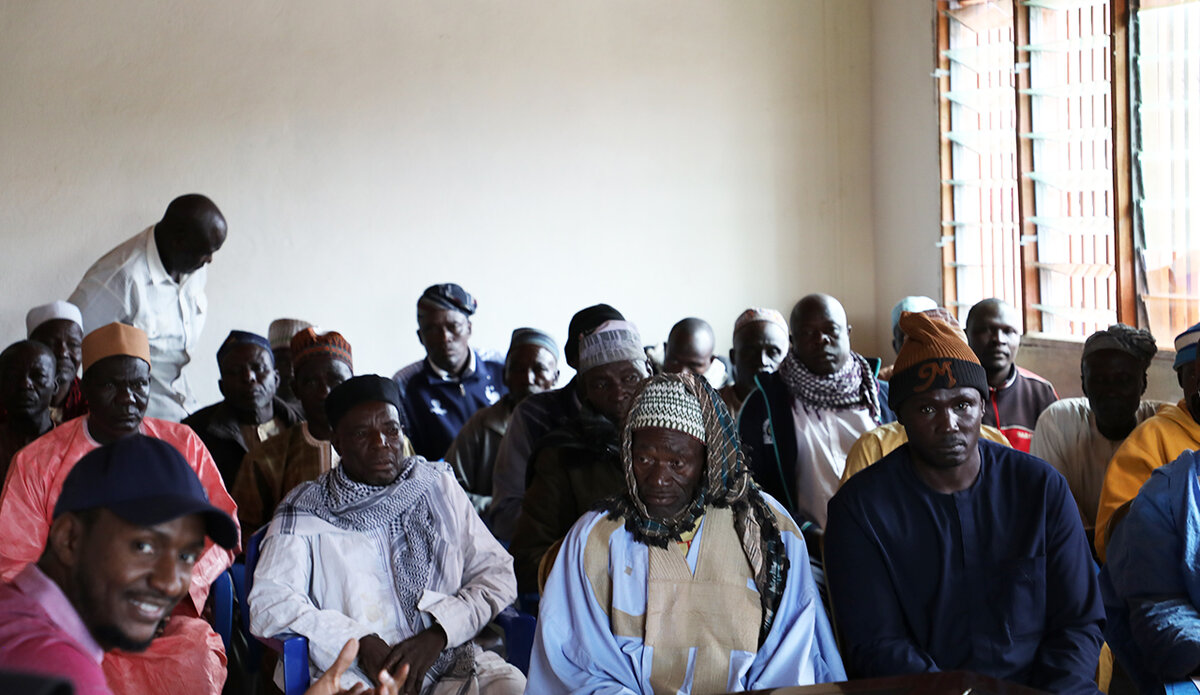Communities Before Borders
How does your country’s border define you? Your nationality, the laws you abide by, the land your property resides on? For many, these exist as fundamental certainties. Yet for families living along the Cameroonian/Nigerian border, this is not a simple question.
Like much of the African continent, Cameroon and Nigeria are both countries built according to colonial borders. After Cameroon initiated court proceedings in 1994 to claim back sovereignty of the Bakassi Pennisula with the International Court of Justice (ICJ), a judgment was handed down in 2002, that required the border between the two countries to be demarcated in accordance with the existing historical documents.
While border demarcation tends to be surrounded by technical language and numerical goals, at its core, this is an issue integrally affecting the lives of local border communities in Cameroon and Nigeria. Inhabitants in villages such as Mogode highlighted the types of issues they are facing during a recent field mission carried out by a tripartite delegation, composed of Cameroon, Nigeria, and the United Nations. During the mid-term review mission of lot 7 of the Project Steering Committee which took place on 4 and 5 July 2023 , officials met with Traditional Leaders and the local population to listen to and address their concerns.
In a meeting convened by the local Prefect, the Traditional leaders represented their communities and voiced their concerns. Many Cameroonian inhabitants explained that their homes, farms, public buildings and even villages were now considered to be in Nigeria. People’s farms had been cut in half while some families were living on opposite sides of the border. Many who had lived their entire lives as a Cameroonian, were now being erroneously told they were considered Nigerian in the eyes of the law.
Acknowledging these very real and visceral issues, the heads of delegation explained that as the ICJ judgment was agreed on in 2002 by the then Heads of State of Cameroon and Nigeria, the court judgment must be implemented. They explained the options this gave local inhabitants: they can change nationality to match the territory they live in, they can maintain their current nationality, or they can move to the side of the border they feel matches their identity, but they must obey the rules and laws of the country that they reside in. Yet, underlying each option, was the key caveat that any issues or grievances must be brought to the local authority in a legal and peaceful means, avoiding violence at all costs.
Despite the practical nature of the meeting, the main take-away from the authorities and local population was that Cameroonians and Nigerians are a family that cannot allow a border to come between the years of rich history and culture that the two countries share. Peace must be protected at all costs.
As pillar construction continues to progress and the conclusion of the border demarcation project is in sight, the rights of the affected populations remain a key priority for the United Nations’ Cameroon-Nigerian Mixed Commission (CNMC). To assist the border populations through this transitional period, sensitization projects will be undertaken to support those affected and ensure the project achieves its goal of peace and security for the people of Cameroon and Nigeria.
 UN
UN


